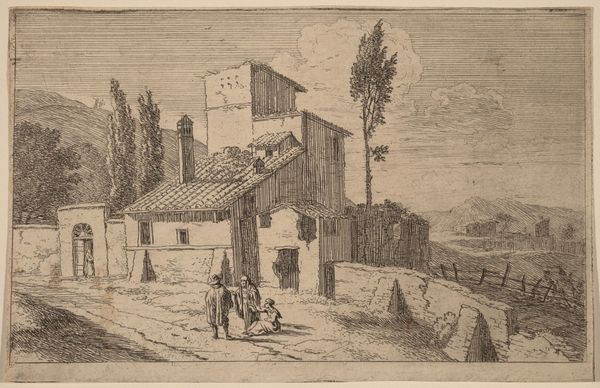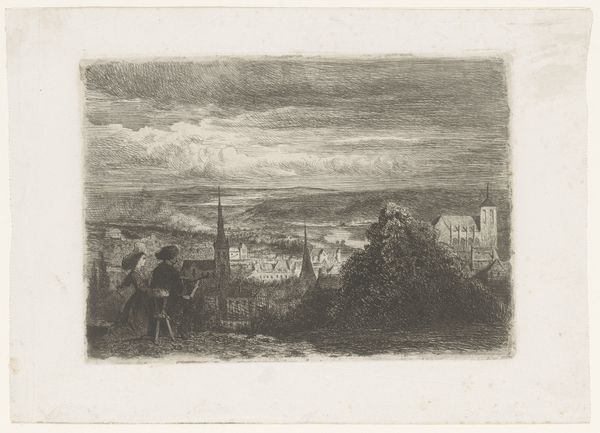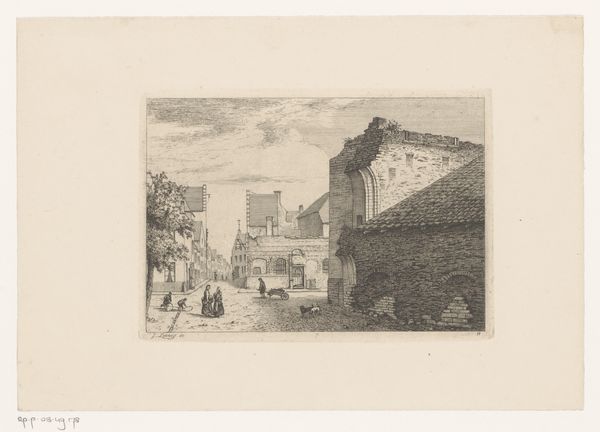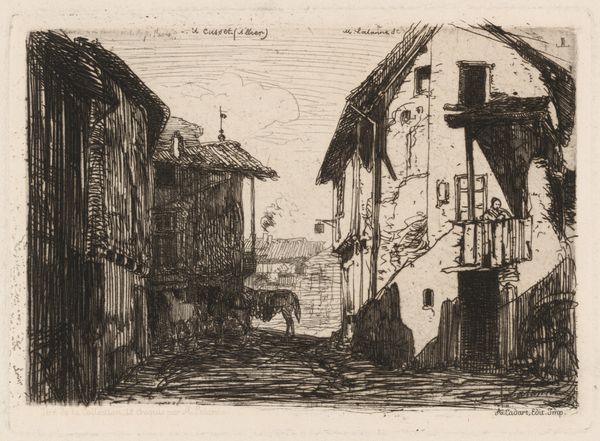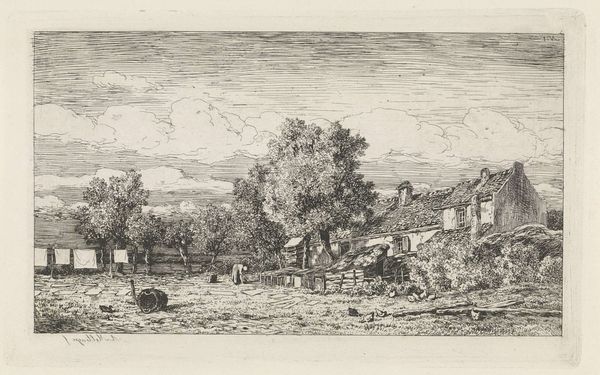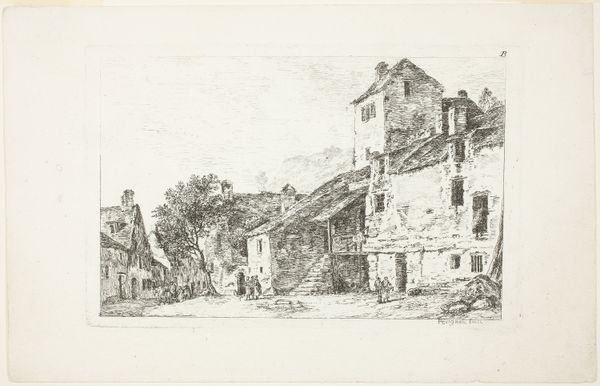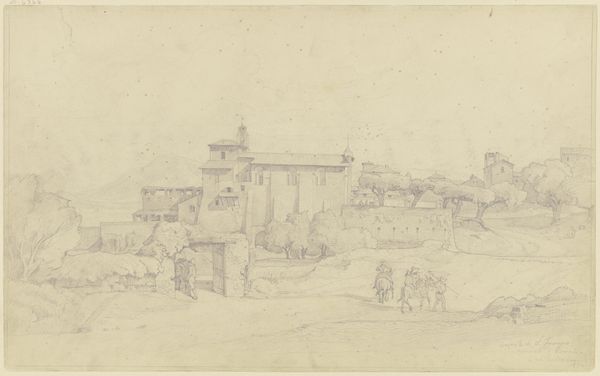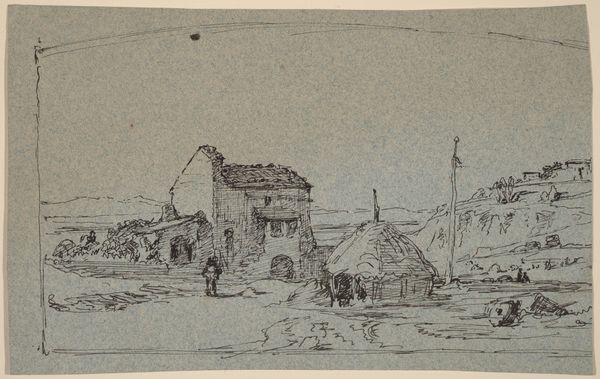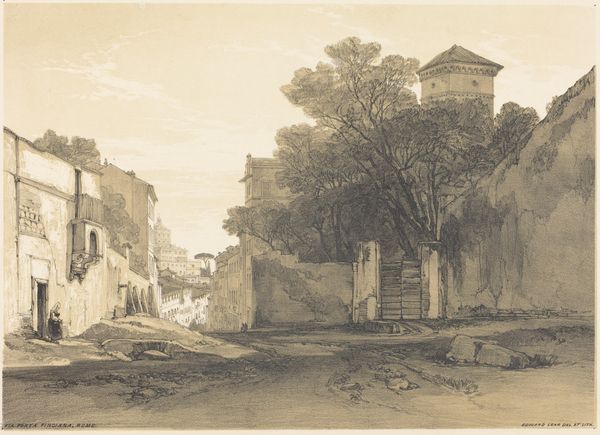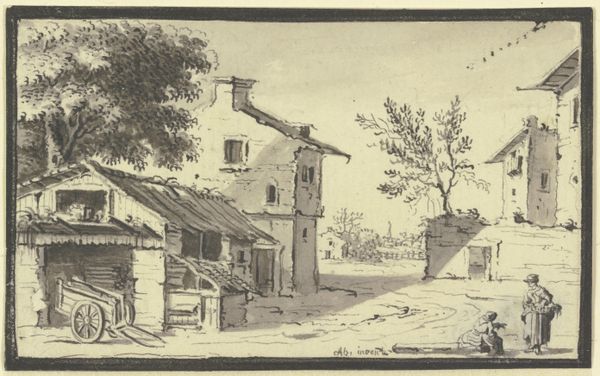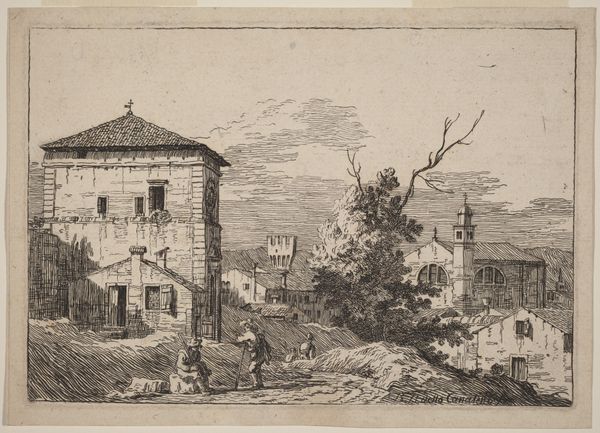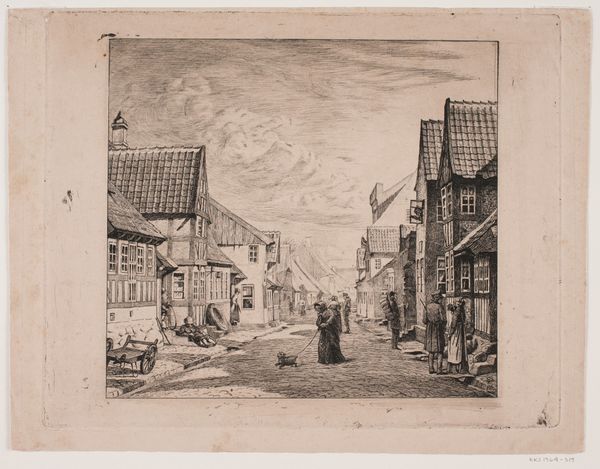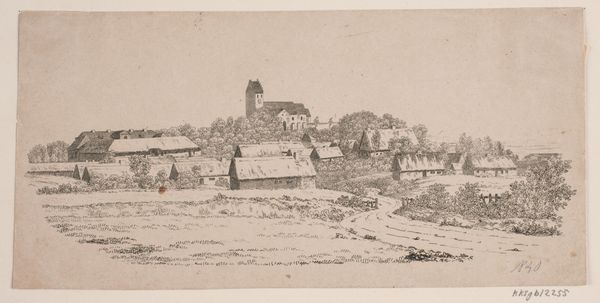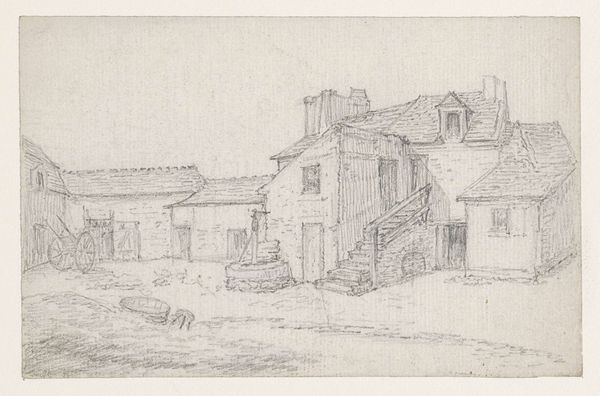
drawing, print, etching, ink
#
drawing
#
16_19th-century
# print
#
impressionism
#
etching
#
landscape
#
etching
#
ink
#
mountain
#
cityscape
Dimensions: height 204 mm, width 339 mm
Copyright: Rijks Museum: Open Domain
Maria van Hohenzollern-Sigmaringen made this delicate etching, titled 'View of a Mountain Village', sometime in the late 19th or early 20th century. As a member of the German aristocratic family, Hohenzollern-Sigmaringen, and by marriage, Countess of Flanders, Maria had a deep connection to the socio-political structures of her time. The etching depicts a quiet village scene dominated by a church, a symbol of communal life. The village, nestled within a mountainous landscape, suggests a somewhat isolated community, perhaps resistant to outside influences. While seemingly benign, scenes like this served to reinforce societal norms and values. This kind of landscape art promoted a sense of national identity and cultural heritage, reinforcing the existing social hierarchy. Understanding the context of artistic production is crucial in art history. Maria van Hohenzollern-Sigmaringen's position as a Countess provides insights into the cultural values she represented and the intended audience for her work. Researching the patronage systems, art academies, and exhibition venues of the period might reveal how this artwork was situated within the art world of its time.
Comments
No comments
Be the first to comment and join the conversation on the ultimate creative platform.
